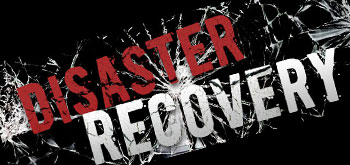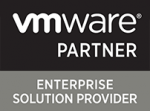We get a lot of questions about disaster recovery and our disaster recovery services so we put together the top five questions and our answers to each.
Q1: What is disaster recovery?
From power outages to natural disasters, any organization can suffer major financial loss when a disaster disrupts operations. Since the widespread adoption of computers, laptops, tablets and mobile devices designed for business, any disaster can cripple an organization if it isn’t prepared.
To ensure continuity across the organization when disaster strikes, IT leaders must consider Disaster Recovery Services designed to help prevent or limit downtime and revenue losses. Disaster Recovery Services can assist with speed to recovery, security and increased reliability of networks and data storage. Disaster recovery ensures that:
- Networks are secured with redundant hardware and intelligent routing
- Data and applications are protected with hosted solutions
- Network connectivity is maintained so employees can do business
Q2: Why does my business need disaster recovery?
There are several reasons why businesses, large and small, need to pay attention to the integrity of their IT networks.
Your facility isn’t a bomb shelter and you don’t control most infrastructure that your business relies on each day. Infrastructure including phone networks, connectivity, computer networks, electrical power, street access to your building, and the surrounding business community are elements out of your control. If any of these infrastructure elements are lost, your business stands to lose. Affordable technologies and services can help minimize the impact of a disaster and these services should be incorporated into daily processes.
Q3: What capabilities should I require when picking a disaster recovery solution?
Different organizations have different needs. Search for a disaster recovery solution that isn’t limited to a specific application or to infrastructure from one vendor. Identify a solution that protects a broad cross section of physical and virtual IT infrastructure that is also easy to administer through an intuitive web-based interface.
A good disaster-recovery solution should include a tested recovery plan designed for your organization and allow for a seamless return to the production site after the disruption event is resolved. Your organization should also see a financial benefit from the cost advantages of having redundant, cloud-based disaster recovery services.
Q4: How can I be positive that backups are completed?
Many businesses never experience a disaster, but still want to ensure they’re protected. It’s a business insurance policy no organization should operate without. But if you send data to be stored in the cloud, how do you know it’s there – ready to use when you need it?
Your IT solution provider will share frequent status reports highlighting the details of every backup. The firm will also schedule test restores to prove the solution works.
Q5: Can my business back up more than just data?
When you think about backing up your organization’s IT systems, think beyond your data. Your entire IT system, or at least the critical ones, must function flawlessly in order to do business. Advanced backup and disaster recovery services should include the duplication of your mission critical servers and have them ready to go when an outage occurs. Business continuity means your IT service provider can get a failed system running even when an extended outage happens.
Have more questions? Fill out the form to your right or give us a call at 612-315-7100.



 Questions about
Questions about








